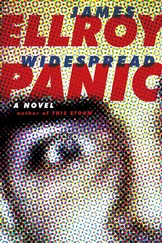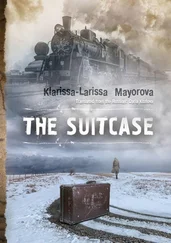Try not to scare him, said Robert.
He’s not a child, said Marina.
All this is unpleasant to hear.
And it’s hard. Life… It’s all sort of dreadful.
But just deciding is half the—
More than half. Once you decide, it’s smooth sailing.
Let’s not go that far. It’s easy. It can be easy.
Basic steps.
We’ll help through them all.
Better not think about it. Worst thing you can do is think about it.
We did it. And you know us. We’re not the most organized or intrepid or courageous—
Adaptable.
Comfortable with change.
Practical, financially speaking.
Good with languages.
But you have an ear for languages. That’s a problem that can be crossed off the list.
Robert, why must you say there are problems?
Face it, Pasha, there’s nothing for you there.
Is it fear that’s keeping you?
You don’t even have friends!
Here you have Misha. He’s a true friend.
That’s more rare than you may think.
At that party you enjoyed yourself, didn’t you?
That you want to deny the fact that you’re capable of having a good time at a gathering of like-minded people means there’s something wrong with you.
Nothing’s wrong with him — Marina, stop being nasty.
He’s not denying anything! He knows he enjoyed himself. He never denied it!
Think of Sanya — he’s taken a bad turn.
What she means is, he can get a good education, opportunities.
The boy has an entrepreneurial bent. That thing he did with the batteries.
You said yourself he’s fallen in with the wrong crowd.
And he’s only seventeen. Imagine in a few years.
Here there are special programs.
Here there are no bad crowds.
And maybe you can get in touch with John Lamborg.
Who?
Oops.
Frida can have her uncle around, and her only cousin. He was practically a brother to her.
Not my brother.
She could use the relationship.
I know there’s like a silent law that this can’t be mentioned, but screw it. Mama’s sick. We’re going to need an extra hand.
Nonsense! I’ll be fine. You can sit on the sofa in the corner. No one will bother you. We just want to look at you.
Pasha, the world is much smaller these days. Trust me as your father. And I happen to know the brother of the husband of the lady who’s the secretary to the senior editor at Novy Mir .
I’ll bake you honey cakes every day! cried Esther.
It was hot. They hadn’t yet come around to the concept of air-conditioning. If it was summer, you had to sweat. And the sweat had to smell. But something about the location of their building, the positioning of the windows, the roof materials — they hadn’t suffered through a sufficient number of summers to develop a dependable theory — made for especially stifling conditions. The windows were gasping, yet the curtains didn’t stir for days. Even the furniture seemed to languish. This was an unfortunate distraction, which had the potential to obscure what was important. People who focused on their physical discomfort seldom got to the point.
I’m glad you brought this up, said Pasha. A bead of sweat originating in his hair somewhere split in half over his lumpy forehead, and the beads diverged, rolling down opposite sides of his long face. I’ve given this a fair amount of thought, as you can imagine. My tendency, with poems at least, is not to show them to anybody until they’re done. I’ve never found it worthwhile to hand somebody a mess and ask them to clean it up for me. Mama, don’t give me that look. I know I’ve kept you in the dark. He looked around the room. He inhaled. He picked a crumb off his stomach. I want to come, he said. Let’s begin the process.
Pasha seemed on the whole sincere and alert. Pasha was never alert. Except here he was — alert and speaking to matters of true consequence. They were swept up by the momentousness. Of course, Pasha was susceptible to the pressure of endings. They were sad, but they needed to be successful. That Sunday afternoon, as Pasha sat in a room with sweating wallpaper, surrounded by his family (a tough audience), his last line was so sonorous it made the future palpable in their throats.
Robert and Esther said their good-byes, staying behind while Levik and Marina chauffeured Pasha to JFK Airport. The torture of the drive — the perfectly stagnant traffic on the BQE, then the Van Wyck, the mysterious sounds and smells given off by their automobile — made them sick to their stomachs. They unlocked the doors should they need to open fast and vomit. Pasha regularly vomited in bearable conditions, so it was a surprise that he managed to swallow at all in this hellish toaster of a car. No one spoke, as there was nothing to say. Pasha had the last word. Who was Levik or Marina to meddle with such an ending? Marina rested her head on her hand and looked out the window. In this city you had to become a professional at looking out the window straight into your own thoughts. What was actually outside was of no concern; it might as well have been a mirage. Those weren’t cars or people — who knows what they were? It didn’t much matter — the chance that she’d see them again was practically nonexistent. My God, Marina suddenly thought. Do we even want him here? Despite the heat she was trembling.
A YEAR LATER Pasha was back, once again flying into JFK’s third terminal, thinned, disheveled, pale. Marina was now enrolled in nursing school, Levik still staring into the void. Frida had been cruelly committed to day camp at the Y, turned over to the American swim director with the toupee, luckily with a taste only for the boys. Robert and Esther were decorating lampshades with beads, claiming they did it for the minuscule fee, though it was obvious that stringing tiny colorful beads was soothing to their nerves. Levik drove the decorated lampshades over to the American lady, Kathleen, who lived on Madison Avenue with two blue cockatoos and in her ample spare time was starting a lamp business. She didn’t need the money but got it regardless. Her business was skyrocketing. People just adored those simple but lovely lamps.
Esther had been opposed to Pasha’s visit, as it rendered void his application for an exit visa, a stipulation being that during the months, years, occasionally decades that it took for such an application to be processed, the Russian citizen was not allowed to leave the country. Pasha had finally applied for the visa, and why should news of Esther’s recurring cancer make him throw that out the window? She preferred to delay seeing him until he could come for good instead of once again flying in for an overladen visit at the end of which they’d be back to square one. Pasha reassured her that he would reapply for the visa the moment he got home, words that had been put into his mouth by Marina.
In such instances Pasha got confused.
He knew he was confused when he stopped being able to predict what would be wanted of him. For example, he was astonished to learn that his sister’s demands didn’t coincide with his mother’s. One afternoon Marina called Pasha and hissed that if he didn’t buy a ticket right then, it would prove once and for all that he was as selfish as everybody claimed. Pasha explained that it was a misunderstanding — he very much wanted to come but had been putting off buying a ticket because he’d gotten the impression that nobody wanted him.
A misunderstanding was the natural state of affairs. Pasha made no effort to clear up his end, choosing to ignore, or simply remaining unaware, that motives were being assigned, intentions misconstrued, until the moment of eruption — shouts, name-calling, frequent phone calls and hang-ups, the stupefied dial tone. The accusations shocked Pasha. It was one thing when they came from acquaintances and critics, another when from the mouths of the dear. Unless instructed otherwise, the dear assumed the worst, having very little faith in humanity, or perhaps just in him.
Читать дальше












